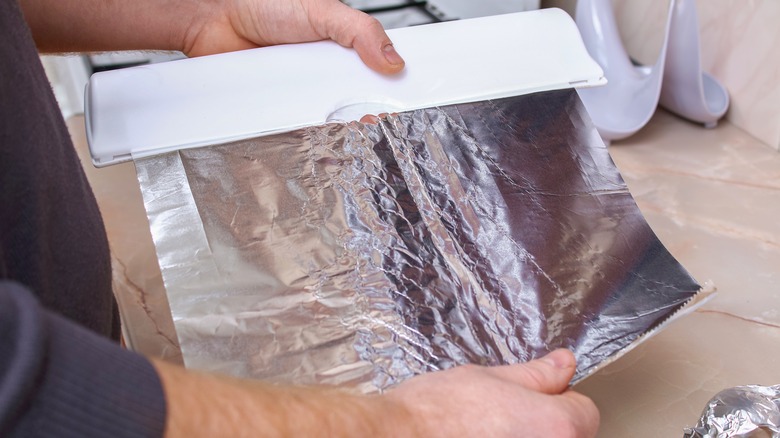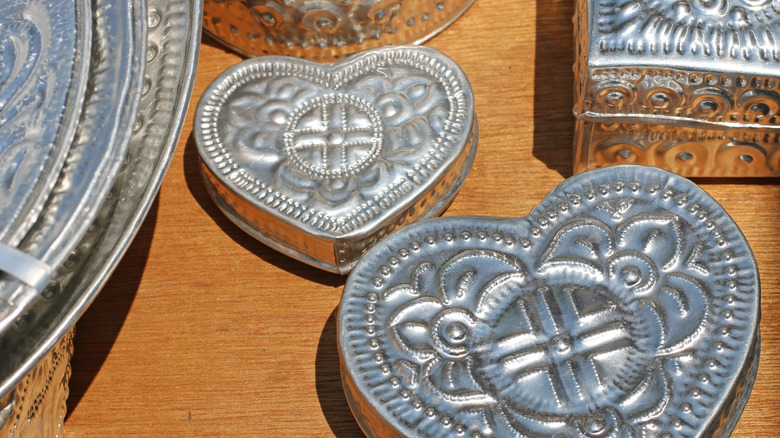The Difference Between Aluminum Foil & Tin Foil (& Which To Use For Home Hacks)
Surviving in the memetic realm of common word usage, terms like "tin foil," "videotape," and "film" outlive their literal meanings — sometimes by a lot. Actual foil made of tin hasn't existed in many decades. Outclassed in every way by the development of aluminum foil, tin foil ceased to exist as a consumer product around World War II. But words have an inertia to them (just try to stop someone from "googling" something on Bing), and bolstered by adjacent terms like "tin can" (and probably by a popular indifference to the distinction between tin and aluminum), tin foil lives on as a misnomer.
Actual tin foil had quite a run. Materials dating from around the 7th to 5th centuries B.C. have been found in China. By the 19th century, tin foil was commonly used in a number of ways — as a dental filling, as a nontoxic wrapper for food and tobacco, and as a recording medium for phonographs. The sheets were somewhat thicker and stiffer than their aluminum successors and left the bitter taste of tin on some foods. The marketplace was ripe for an alternative when aluminum came along.
The magic of aluminum foil
Starting almost immediately when it came to market in 1910, aluminum foil was a comprehensively superior product to tin foil. Aluminum was cheaper (in part because tin is actually relatively rare), more malleable, more durable, and more highly conductive than tin. But aluminum's ability to leave no taste on wrapped food doubtless contributed to its success immeasurably. You know, no doubt, about aluminum foil's countless uses related to the kitchen and the grill, but its usefulness to homeowners, DIYers, crafters, and many others is hard to overstate.
Foil is a household staple, and it can be repurposed in a variety of interesting ways. It's used for many cleaning tasks throughout the home. In the garden, aluminum foil can keep pests at bay, including insects, birds, rodents, and deer. You can use it in crafts, on plumbing, and — in a pinch — to reseal plastic bags with a hot iron. It's not clear if aluminum has replaced tin in the classic "tin foil hat" — research on the matter is scant and would, in any event, probably be considered unreliable by aficionados of tin foil hats.

